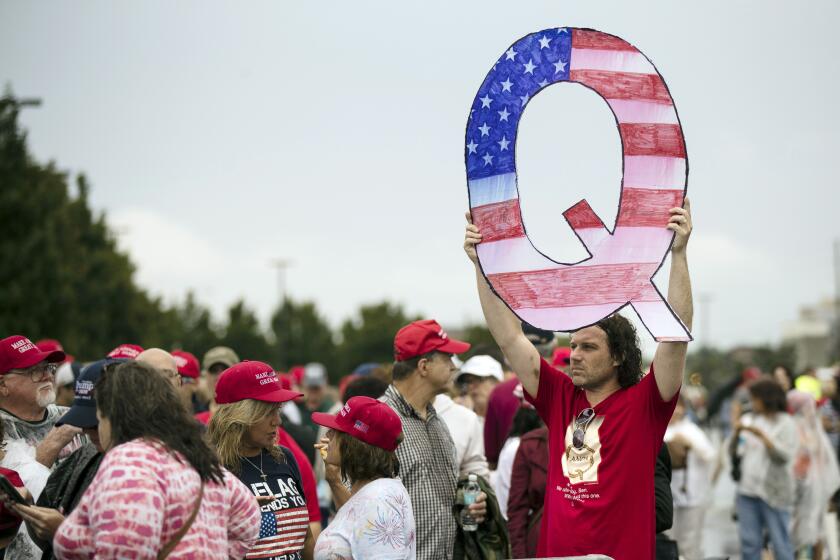Facebook bans political ads after end of voting on election day
- Share via
Facebook Inc. is tightening its rules on content concerning the U.S. presidential election next month, including instituting a temporary ban on political ads when voting ends, as it braces for a contentious night that may not end with a definitive winner.
The social media company announced a handful of updates Wednesday to prepare for the possibility that final results won’t be known immediately on Nov. 3. The suspension of political ads is similar to a plan Google already adopted in an effort to keep candidates and their campaigns from spreading misleading or confusing messages to voters. Facebook doesn’t fact-check political ads.
The company will also take a more aggressive stand against posts that appear to threaten or intimidate voters. Facebook already forbids content that could cause real-world harm, but is expanding its voter intimidation policy after President Trump and son Donald Trump Jr. encouraged their supporters to guard polling locations to look out for nefarious activity.
“We need every able-bodied man [and] woman to join Army for Trump’s election security operation,” Trump Jr. said in a video posted online last month. “We need you to help us watch them,” he added, referring to Democratic voters.
In its most sweeping content policy decision to date, Facebook has banished the QAnon conspiracy theory outright, saying its spread is associated with ‘real world harm.’
Facebook said in a blog post Wednesday that it would “also remove calls for people to engage in poll watching when those calls use militarized language or suggest that the goal is to intimidate, exert control, or display power over election officials or voters.” That includes calls to join an “army” or go to “battle,” said Monika Bickert, Facebook’s head of global policy management, on a call with reporters.
Chief Executive Officer Mark Zuckerberg has already said he doesn’t expect results will be available on election night due to an increase in mail-in ballots, and the company is preparing for that inevitability. Facebook will put a notice atop users’ news feeds alerting them when the polls close, and will specify that votes are still being counted if a candidate tries to claim a win prematurely. Facebook rules also forbid candidates from declaring victory before official results are tallied.
Facebook has long considered changes to its political advertising policy, including a full-on ban in the days leading up to the election, but has settled on a more nuanced approach. The company will not accept any new political ads in the week before the election and will reject ads that claim victory before official results. Facebook said the ad ban should last for at least a week after the election is over.
The company, based in Menlo Park, Calif., has taken heat for moving too slowly to fight election misinformation, and is ratcheting up its efforts as the election gets closer. On Tuesday the company banned all Facebook groups and pages linked to the QAnon conspiracy theory, after critics have called on the company to ban the group for months.
More to Read
Inside the business of entertainment
The Wide Shot brings you news, analysis and insights on everything from streaming wars to production — and what it all means for the future.
You may occasionally receive promotional content from the Los Angeles Times.











